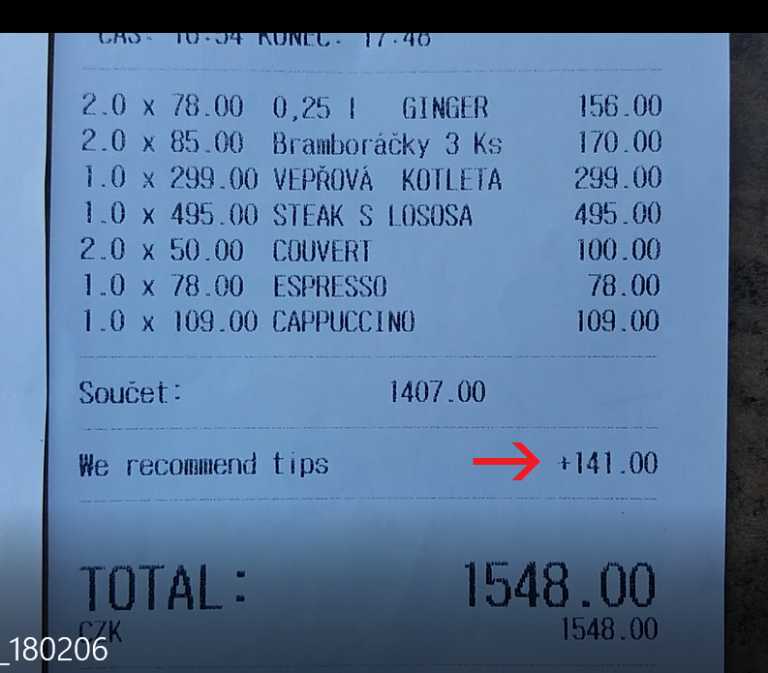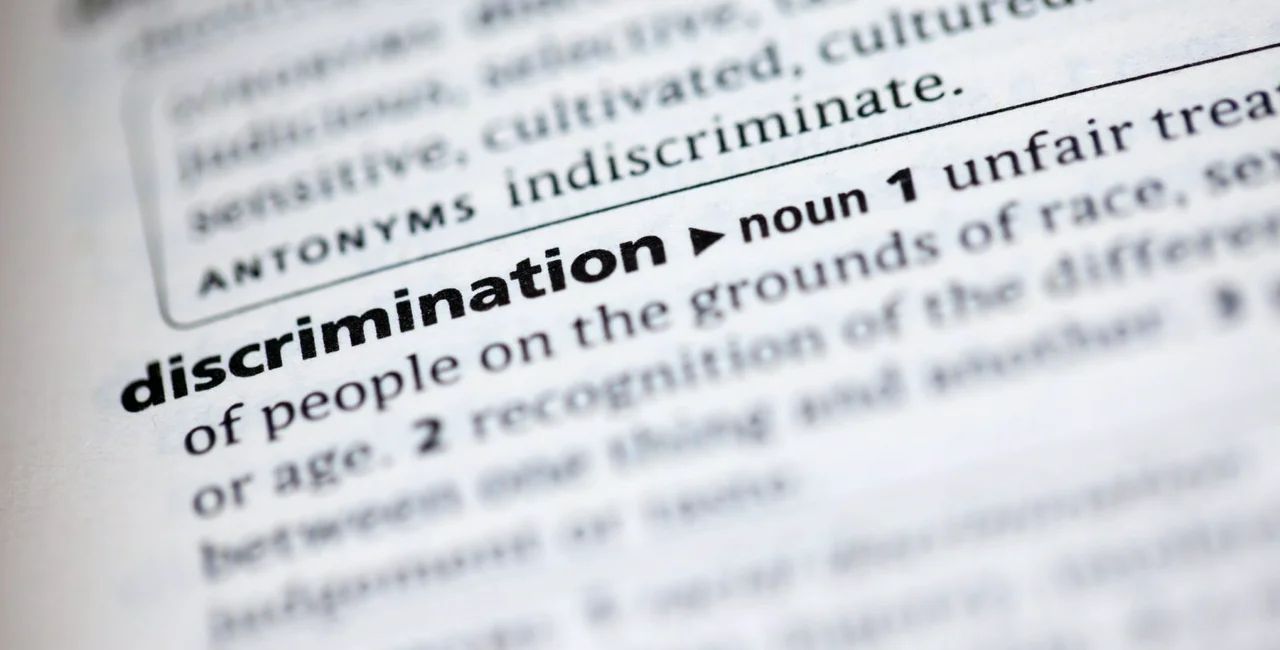Not all restaurant discrimination is aimed at foreigners. The Czech Trade Inspection Authority (ČOI) found two unusual cases in the second quarter of 2019. One case was a restaurant that refused to seat Czech speakers, and another was a place that wouldn’t allow children.
This is in addition to recently reported fines in cases discrimination by overcharging tourists and others who don’t speak Czech.
Usually
problems are found with the bill at the end. The instance with Czechs
being refused service didn’t get that far.
“One case of discrimination was in terms
of nationality, when Czech-speaking inspectors were in the role of
consumers. It was not possible [for them] to sit in the restaurant at
a table and place
an order, but for English-speaking consumers it was,” the
ČOI said in a
press release.
Another
case of discrimination involved
age, where the
restaurant website indicated that the place
was not suitable for children under 8 years
old. “When
asked electronically by the consumer whether it is possible to
reserve a table
at the restaurant for
four adults and
one child aged
4, the restaurant employee electronically
replied that they do not accept the presence of children under 8 in
the restaurant,” the ČOI
said.
Both
cases are now facing administrative proceedings. The names of the
restaurants won’t be disclosed until the
proceedings are finished, due to EU privacy rules.
Some 139 inspections were carried out nationwide between April 1 and June 30. Issues were found at 64 places, or 46%. Only the two mentioned cases met the legal definition of discrimination under the Consumer Protection Act, and both were in Prague or Central Bohemia.
In
26 cases, shortcomings
were found in the “principles of honesty in
sales.” Another
24 cases involved sellers
that did not inform consumers about prices of products or services in
accordance with price regulations.
The
highest rate of violations was
found in the Hradec Králové and Pardubice regions, where there were
only two inspections but both found errors, for
100%. The
Olomouc and Moravia-Silesia regions were
next with 22 out of 39 inspections finding
errors, or 56.4%.
Prague and Central Bohemia had the lowest rate, with two out of nine inspected places in violation, for 22.2%. These, however, were the cited age and nationality discrimination cases.
In
the second quarter of 2019, six fines totaling 210,000 CZK came into
force in connection with the proven discriminatory conduct. Due to
the length of time for administrative
proceedings, these fines involved
conduct from before the second quarter of
2019.

The ČOI gave details on two discrimination cases in Prague that resulted in fines of 60,000 CZK for each of the violators.
At Clock Caffé in the Old Town Square, inspectors found out that foreigners were faced with a service charge that was not disclosed in advance. Inspectors, one speaking English and another Czech, both ordered from the beverage menu and selected an item from a showcase. The English speaker was charged a 50 CZK service fee. The Czech speaker was not charged a service fee.
Café Restaurant on Střelecký Island automatically added a recommended tip of 75 CZK to the bill of an English-speaking inspector, while the Czech speaker was not hit with an added tip.
More inspections were carried out on September 20. In one case, a Russian speaking inspector was charged the right amount on the bill but given change that was off by over 300 CZK. Another violation involved mandatory electronic evidence of transaction (EET) receipts. One receipt given to an English speaker did not have proper EET information, while a receipt from the same register given to a Czech speaker had the required data. This case will be forwarded to the Financial Administration, which is responsible for enforcing EET.












 Reading time: 3 minutes
Reading time: 3 minutes 
























